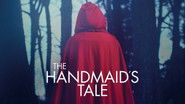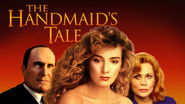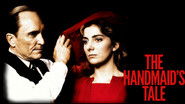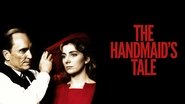cembalo-91031
For those who think this might be far-fetched I refer to the Christian and very influential theologian, St Augustine of Hippo, who thought sex was disgusting (and he had had quite a bit of it) and only redeemed by its procreative aspect. This ably demonstrates that reducing sex to that function is debased, and totally wrong. Yet sanctions on contraception are still widely upheld. Figure out the implications of that. The series ably illustrates the ridiculous and artificial restrictions on female behavior: women are overly delicate in speech and gesture but when violence is mandated they are expected to, and do, comply. And even for unbelievers, quaint, pious expressions are so successfully inculcated they can't resist mouthing them even when unobserved. It reminded me suddenly of Joan of Arc who saved France as a separate country, but simply had to die, because, what do you do with a talented, heroic female soldier whose existence undermines the male biases of the whole system? This movie is not merely futuristic but a kind of parodic reflection of the status and lives of most women in this so-called civilized world. Traditional religion has not been the only negative factor, but it certainly hasn't helped much.
SnoopyStyle
In a world consumed by infertility, Kate (Natasha Richardson) is trying to escape the Republic of Gilead with her family. It's a totalitarian Christian state where fertile women are forced to conceive. The blacks, welfare, women's liberation and in vitro fertilization are among the things blamed for the world's problems. Kate and her daughter are captured while her husband is killed. Kate is made to be a handmaid trained by Aunt Lydia (Victoria Tennant). She befriends lesbian Moira (Elizabeth McGovern). She is placed with the commander (Robert Duvall) and given the new name Offred. She is ritualistically raped and expected to conceive for them. As he takes an interest in her, she fears retribution from his wife Serena Joy (Faye Dunaway). The commander is infertile and she falls for the help Nick (Aidan Quinn).It's a harrowing world. The problem is trying to get a compelling story out of it. It's fine for the most part although the production design could be better. The last act needs an explosive ending. The movie decides on an actual explosion which does nothing for the tension. With its obvious restraints, the movie needs a less expensive and more intense final conflict. In my mind, she needs to also kill Serena Joy in an all out fight. Kate ends up waiting around for the men to save the world. It's not a terribly liberated ending.
Blueghost
I've seen this film twice. Once in my social studies class in high school, and I think once more on HBO or something.I didn't find the film all that interesting. It was a sci-fi dystopic- jab at religious fundamentalism. In this case Christianity, which to me didn't seem to plausible.And I guess that's the key element of my review. The society portrayed seem to have this strange quasi-hybrid matriarchal tinge over a patriarchal society. Reproduction is regimented and given a ceremony. A comment on social conventions that grate against social freedoms. It's an old theme, though given a unique flavor in this play.Like a lot of sci-fi it's a bit of a warning, but one that strikes me as being a bit more fanciful than anything else. No matter how you dress it up it just doesn't stand to reason that anyone, for any length of time, would ever put up with the draconian measures used to clamp down on sexuality.I don't remember too much else about this film, other than I didn't bother to see it again. If you must, then see it once.Watch at your own risk.
rakabak
The story is from the book and is what it is - I happen to like it very much. Some seem to think the story is ridiculous, over the top, irrelevant - I happen to disagree but I still say the movie is a serious disappointment as a film.With the exception of the cast, which of course a book doesn't have, everything that's great about the movie is derived from the book, and everything that's terrible about the movie is the film's own. Some have commented on the vibrant colors of the womens' caste clothing - red, blue, white - the veils, the crowd scenes - these are Atwood's creation, clearly described and strongly symbolic throughout the novel. Actually, the cinematography doesn't make any specific use of these elements at all - the elements just exist as described in the book, and the meaning is actually reduced in the film as compared to the book. For example, whereas the book repeats motifs such as the bodies swaying over the archway, and makes them meaningful, the camera glances over these elements once only and reduces them to a vague element that's basically been checked off the list of items to be adhered to. Another example is the Salvaging scene - the book makes it clear that the venue is re-purposed from a cultural facility, a place with meaning to Offred. The scene is massive, the emotion is throbbing, the pressure is overwhelming. The film reduces this scene to a cheap little temporary grandstand next to a forgotten courtyard and about thirty individualized handmaids - not the herd of emotional, blindly following women described so effectively by Atwood.That Salvaging scene is also an example of how the film defuses at every turn any potential for character development and emotional tension. In the book, Offred doesn't know Ofglen, doesn't trust the situation even when she begins to think that Ofglen might be making overtures, always feels afraid of giving away her inner state before this other red-veiled woman - until the Salvaging scene. When the man is beaten by the women, Ofglen leaps into the fray and knocks the man unconscious. Offred is shocked and taken aback, until Ofglen explains extremely quietly (not overtly as in the film) that he was a political. The book makes it clear that women have been turned against one another by this regime, anyone could be a secret agent or a true believer, everyone is isolated from each other. The film on the other hand shows Offred making allies everywhere she goes, and this simply isn't true to the book's premise. The Martha (the caste name for female servants) isn't particularly friendly, Nick is an ambiguous figure, Serena Joy is rather crazier and more unpredictable than her role on screen.Those are just a few examples of the degradation of the story in this film adaptation. If you haven't yet read the book, the story in the film might still be strong enough to watch, and I think it's a useful and interesting story overall, so I wouldn't advise against watching the film - but be warned, the cinematography and set design is just about as boring as it could possibly be. Camera angles - nonexistent. Depth of field - rotten. Mood - tolerable but less dynamic and compelling than it could have been, by a wide margin. The story arc and the editing were also extremely bland, and the sad thing here is, if the direction had simply adhered to Atwood's style, which used flashbacks at Offred's times of emotional stress to develop the back story, the film could have been a ground-breaker. If Offred hadn't been tarted up with her open jacket and her exposed hair, the contrast between her mandated outward state and her conflicted inner states could have come through more strongly. If the house and her room had as forbidding as in the novel - her actions and resources curtailed in order to prevent another suicide and to keep her under control - the film might have captured some of the book's power.There were even allusions made in the screenplay that started to follow the novel's depth but then weren't followed up on, such as the novel's reference to the prior Handmaiden's suicide and Offred's subsequent inspection of her room for avenues of self-destruction, or the tentative overtures Ofglen made to Offred by using the words "May Day", and how this overture might have backfired on Offred when she attempted to use it later with the new Ofglen. What a disappointment the film was in this respect.Taken all in all, the film just began to seem lazy.And yet, the novel is a solid work of literature and it can't be easy to turn a work of internal drama into a visual form while retaining subtlety and staying faithful to the entire plot. Even so, the film wasted a lot of time on plot elements that didn't even exist in the book. Spending so many frames on the border scene, with multiple flashbacks to her child's wanderings, when these weren't even part of the original story and many other flashbacks didn't make it in - this seems like a serious error to me. The actors were very good. I can't fault any of them. They were all entirely believable. The adaptation just wasn't as rich as the novel, nor as rich as many movies manage to be.If for example a friend wanted to see the movie, I would watch it again. It's not terribly torturous, it's just rather tedious and it does the novel a disservice. It doesn't make use of the unique power of the camera to tell a story. While the story will remain a classic, the film adds nothing to it.






